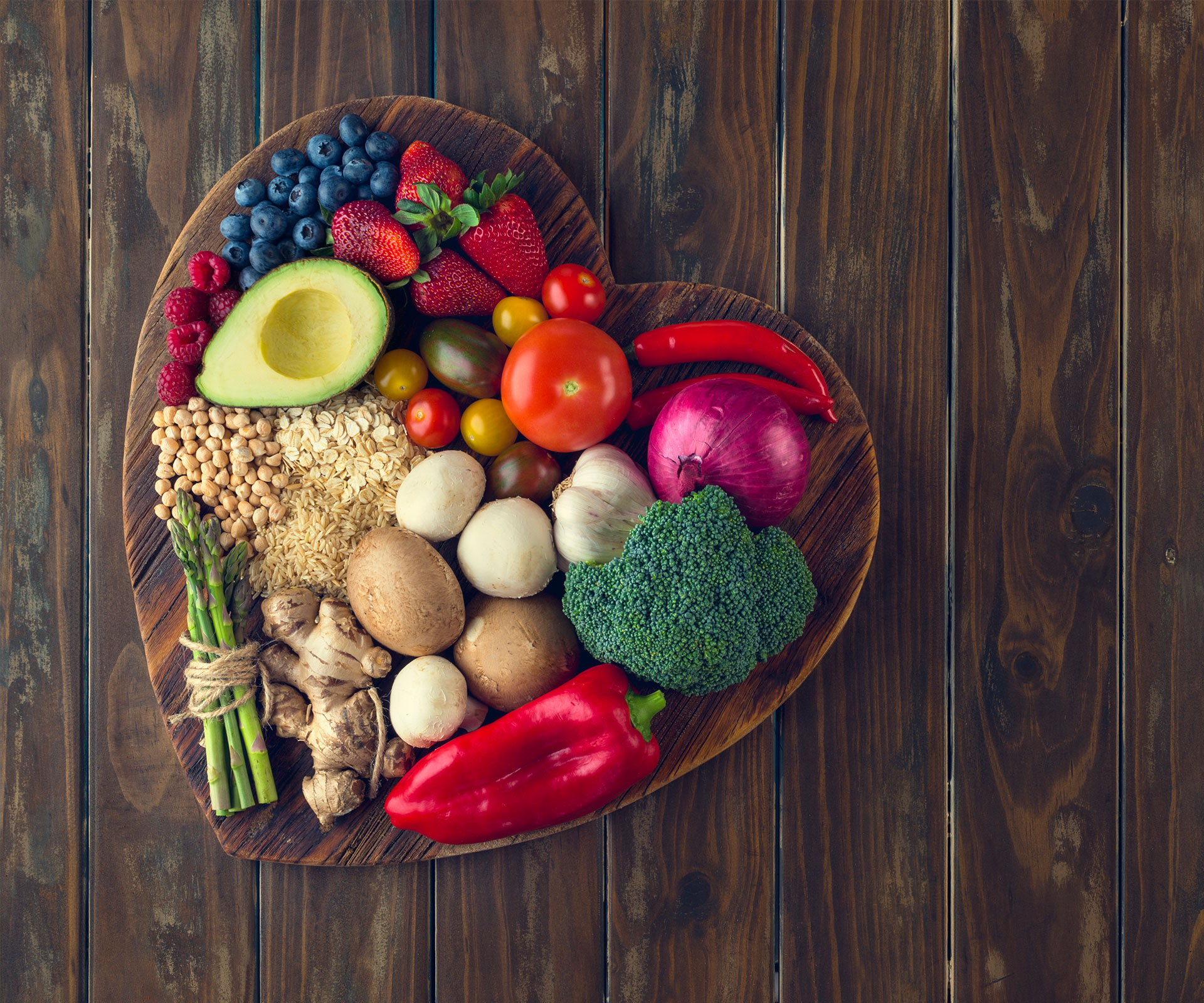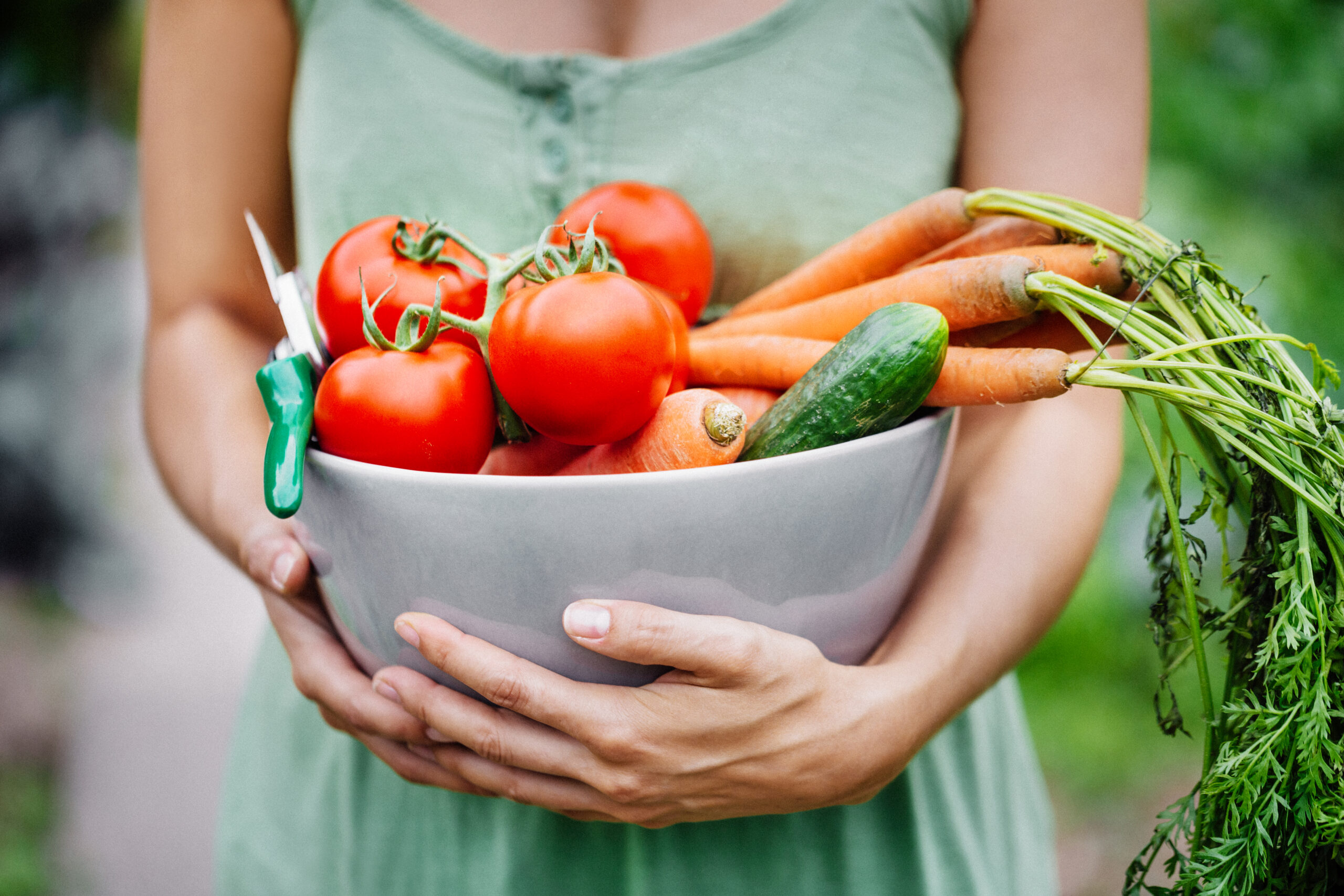The typical Western diet is packed with processed, pre-prepared and takeaway foods, and it’s no different in New Zealand: For every $100 spent on food, around $26 goes on takeaways and eating out.
But we aren’t as quick to spend money on fresh fruit and vegetables.
Research from 5+ A Day found that only 37 per cent of us manage the recommended five servings of fresh produce a day.
But a growing body of evidence is finding that not only should we be eating more fruits and vegetables, we should eat them in their natural state – raw.
From improving mood and mental health to helping with weight loss and reducing the risk of cardiovascular disease and type 2 diabetes, some studies suggest including more raw foods in our diet brings a wealth of physical and mental health benefits.

Best known for vitamin C, citrus fruit are also a good source of carbohydrates, potassium, folate, calcium, thiamin, niacin and vitamin B6.
Better mental health
One of the latest studies to support raw foods is from the University of Otago, where researchers found eating raw fruits and vegetables has a better effect on mental health than cooked, canned or processed fruits and vegetables.
“A few years ago, I ran a study where we gave people fresh fruits and vegetables, such as carrots, kiwifruit, apples and oranges. We found people reported increases in positive mood in just under two weeks,” says Dr Tamlin Conner, a senior lecturer in psychology at the University of Otago.
“We didn’t find that increase for people who ate cooked fruits and vegetables – people who ate them raw showed the greatest increase in wellbeing.”
Dr Conner’s latest study explored these findings and confirmed the positive relationship between raw fruits and vegetables and better mental health.
“We are not advocating a raw diet – we didn’t test that – but the study suggests we should aim to eat most of our five serves of vegetables and two serves of fruit in their raw and unprocessed forms,” she says.
“There was a strong association between raw fruits and vegetables and lower depressive symptoms, higher positive mood, greater wellbeing and higher flourishing – a feeling of purpose and that you are thriving, not just surviving.”
Dr Conner says when scoring depression, a score of 16 is considered the benchmark. Eating zero serves of raw fruits and veges daily earns a depression score of 18 – but eating five serves of raw fruits and vegetables daily produces a healthier score of 10.
Raw fruits and vegetables may have more beneficial effects because cooking can destroy some vitamins and minerals.
“This is just one health behaviour – but it is one we can have some control over,” says Dr Conner.
“Small changes like this can make meaningful changes in our mental health.”
A healthier heart

An international study published in The Lancet has found eating raw vegetables every day may also help reduce the risk of cardiovascular disease.
The Prospective Urban Rural Epidemiology (PURE) study looked at fruit, vegetable and legume intakes and found the risk of cardiovascular disease was lowered if people regularly ate these foods.
Three to four servings a day appear to be most beneficial and the researchers found raw vegetables were particularly beneficial.
“In plant foods there are certain vitamins and minerals, particularly vitamin C and folate, that are heat sensitive and so can be reduced when cooked at a high temperature,” says Milly Smith, spokesperson for the Dietitians Association of Australia.
“Eaten either raw or cooked, vegetables will give us nutritional benefits but boiling vegetables for a long period will cause vitamins to leach out into the water. At the end of the day, when it comes to these plant foods, eating them cooked or raw or a mix of both and getting closer to meeting our daily requirements is a great way to go.”
Did you know?
A diet high in fruit and vegetables is good for digestion and will lower your blood pressure, according to a University of Southern California study.

Lower risks of cancer, diabetes and arthritis
Some studies have also linked eating raw cruciferous vegetables with a lower risk of bladder cancer.
Researchers said a key ingredient in these vegetables – isothiocyanates – are lost during cooking and isothiocyanates are believed to help protect against cancer.
Cruciferous vegetables include broccoli, cabbage, cauliflower, kale, bok choy and Brussels sprouts.
Eating plenty of whole grains, fruit, vegetables, nuts and legumes, may also play a positive role in helping to reduce the risk of diabetes.
A US study over 20 years, found people who have a high intake of plant foods and lower amounts of animal foods, had a 34 per cent lower risk of developing type 2 diabetes.
Research is also showing that a diet high in antioxidants can help protect joints against the inflammation of osteoarthritis.
Vitamins A, C and E are effective antioxidants with vitamin A found in carrots and kale, vitamin C in abundance in citrus fruits, red and green peppers and berries, and raw nuts and seeds containing vitamin E.
So each day when you aim to eat the recommended five serves of vegetables and two serves of fruit, try and make sure that some of them are eaten in their purest form, says Dr Conner.
“You have to be mindful to fit in the recommended number of serves each day and even more mindful for them to be mostly raw,” she says.
“But make a start by having a salad for lunch or with your dinner and choosing a banana, apple or carrot as snacks during the day.”

10 of the best foods to eat raw
Carrots
Rich in vitamin C, beta carotene, fibre, vitamin K, potassium and antioxidants.
Bananas
High in fibre, potassium, vitamin B6, vitamin C and magnesium.
Apples
High in fibre, vitamin C, potassium, vitamin K and vitamin B6
Dark leafy greens
Contain fibre, folate, vitamins C and K, iron and calcium.
Grapefruit
Contains vitamins A and C, copper, fibre, potassium and vitamin B1.
Lettuce
High in fibre, manganese, potassium, vitamin B1, copper, iron and vitamin C.
Citrus
Oranges, tangerines and mandarins – best known for vitamin C, carbohydrates, potassium, folate, calcium, thiamin, niacin and vitamin B6.
Berries
Contain fibre, vitamin C, folate and potassium.
Cucumber
Rich in potassium, fibre, vitamin C and smaller amounts of vitamin K and C, magnesium, potassium, manganese and vitamin A.
Kiwifruit
Contains vitamin E, copper, vitamin K, choline, magnesium, phosphorus and vitamin C.


